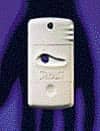Certain medications used to treat acid reflux are associated with an increased risk of hospitalization in cystic fibrosis (CF) patients, a study shows.
Gastroesophageal reflux disease (GERD, aka acid reflux), which occurs when acid from the stomach rises into the esophagus causing heartburn, is more common in CF patients — a prevalence of 35-81 percent — than in the general population.
Studies have suggested an association between GERD and poor pulmonary function, making it important to study GERD in CF. The most commonly used therapies to manage GERD belong to a class of drugs known as proton pump inhibitors (PPIs), which act as acid suppressors. It is unclear whether PPI use in CF patients can affect lung function, especially given the fact that previous studies have shown that PPIs are linked to community-acquired pneumonia.










